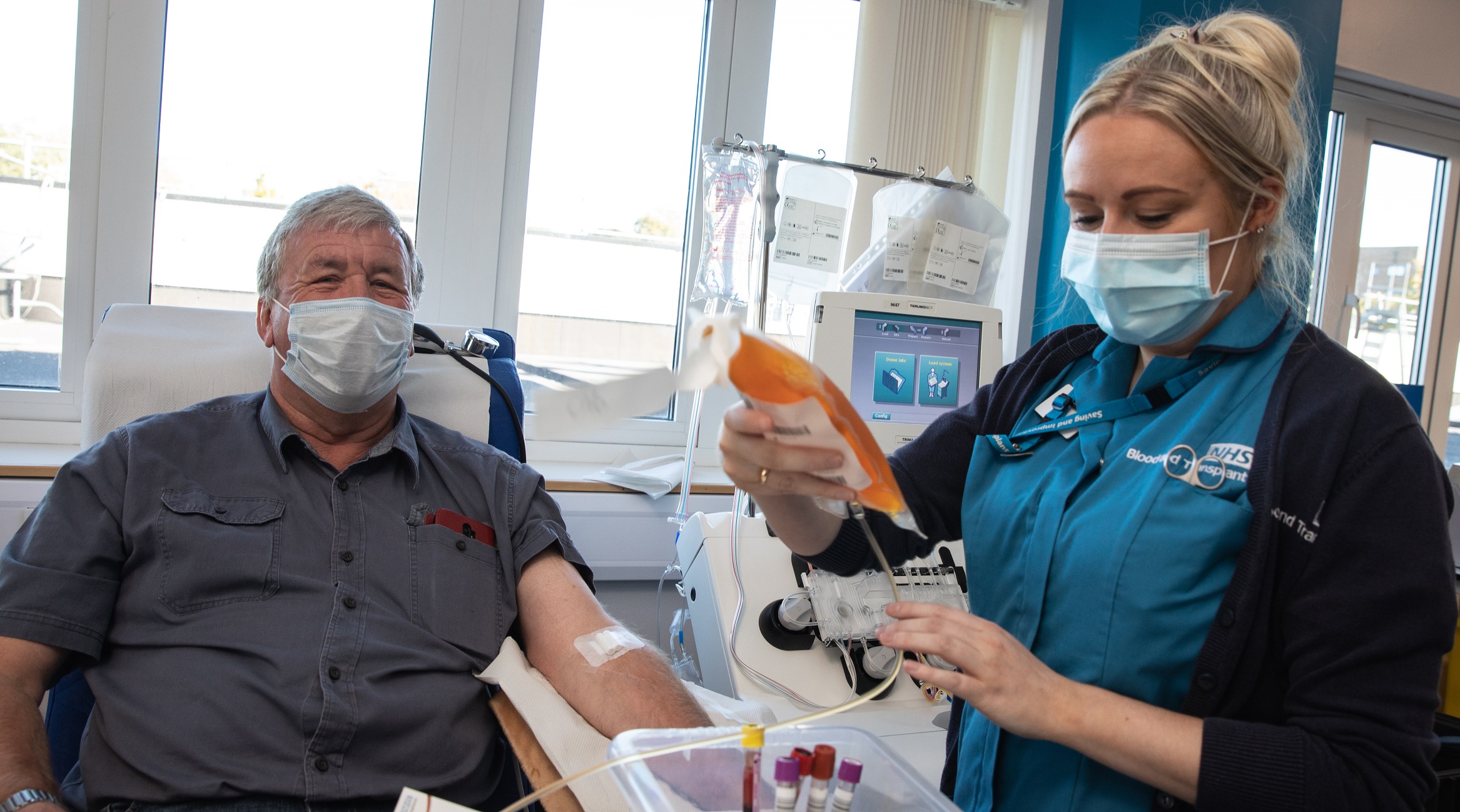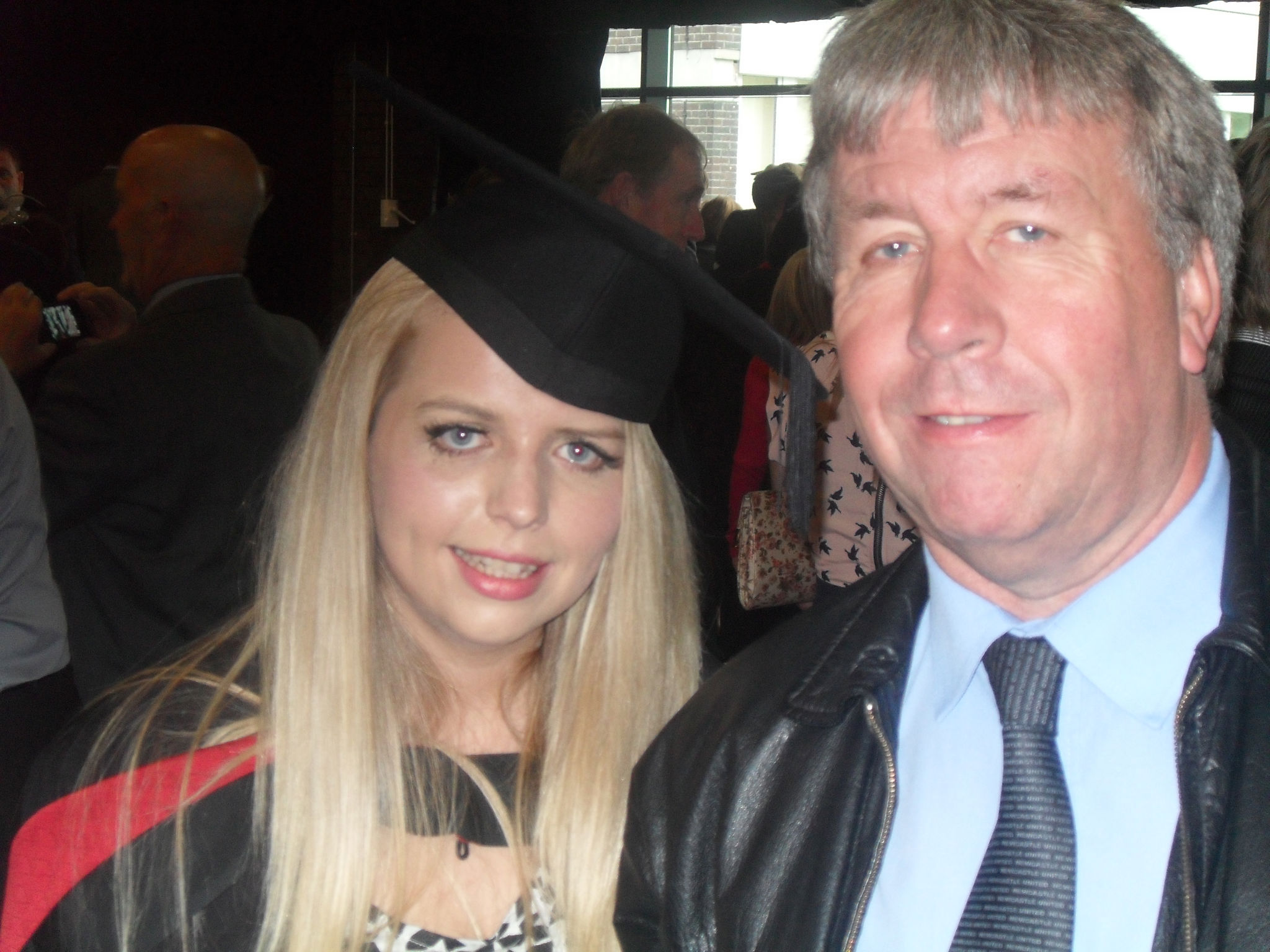Father of 29-year-old nurse who died of COVID-19 is now donating convalescent plasma
A father has donated convalescent plasma for use as coronavirus treatment eight times after his daughter died from the virus.
Alan Mack, 62, from Morpeth, made his eighth donation at Newcastle Blood Donor Centre.

His daughter Rebecca died from COVID-19 aged 29 and he is inspired by wanting to help other people with the disease.
Alan had COVID-19 himself and the antibodies in his blood plasma could stop the virus spreading in other people.
Rebecca, a nurse who worked on a children’s cancer unit and NHS 111, died in April while self-isolating at home.
She had called an ambulance and left the door open but passed away before it arrived.
Alan said: “If I can help one person by donating my blood plasma, that’s more than enough.
“I don’t want anybody else to go through the terrible ordeal that we went though. Being able to donate and fund raise in her memory is helping us. I felt proud to be honest – proud and privileged.
“I felt really emotional the last time I donated because I was explaining my circumstances to the donation nurses, they didn’t know until then, I was just another person donating plasma.
“As long as my antibodies are still high, I will keep donating.”
He added: “I’ve donated blood before and donating plasma is fine too, not a problem.
Only around 20 people have donated eight times or more.
Alan spent several days ill with COVID-19 though he did not need to go to hospital. Alan and his wife Marion think they both got the virus from Rebecca after driving her home from a midweek education course shortly before the March lockdown.
 Alan and Marion have set up a JustGiving page in their daughter's memory, raising money for a children’s cancer charity at the Great North Children's Hospital, and you can donate here.
Alan and Marion have set up a JustGiving page in their daughter's memory, raising money for a children’s cancer charity at the Great North Children's Hospital, and you can donate here.
Marion said: “She was selfless, fun and caring. Her death has devastated us but we want to make something positive out of this, because that is what Rebecca would have wanted.”
Convalescent plasma is the antibody-rich plasma of people who’ve had coronavirus can be transfused into people who are struggling to develop their own immune response. The antibodies could slow or stop the virus spreading, which could save lives.
Around 280 people received convalescent plasma transfusions during September, the highest monthly number so far, more than five times the number of people (around 50), who received plasma in August.
There is promising evidence for the effectiveness of convalescent plasma but before general use patient benefit needs to be demonstrated in randomised control trials. NHS Blood and Transplant (NHSBT) is collaborating with the RECOVERY and REMAP-CAP trials and results could come before the end of the year.
Donations are urgently needed now so that if the trial confirms patient benefit, stocks can be made available for general use.
NHSBT currently holds around 6,000 units of donated convalescent plasma with high enough antibody levels for the trials. A further 2,000 units have been issued to hospitals and have either been transfused or are in local storage in hospitals.
Professor Dave Roberts, NHS Blood and Transplant Associate Director of Blood Donation, said: “Alan is an inspiration. We urgently need donors and we thank Alan and everyone else who has had COVID who is donating plasma. We are using this plasma in a trial to show it is effective treatment, how best to use it and so how to learn how many lives as possible can be saved.”
About plasma donation
Plasma is being collected at 23 donor centres around the country, and five pop-up donor centres. London, Greater Manchester and Birmingham are priority areas for donation. More pop-up plasma donor centres will be opening during the autumn.
Donation takes about 45 minutes. The whole visit – including the donation, snacks and checks - takes about 1 hour 15 minutes. Your body usually replaces the plasma you’ve donated in 24-48 hours. Your body also quickly replaces the donated antibodies. All donations are tested for COVID-19 antibodies.
Plasma donations are being taken in: Birmingham, Bradford, Bristol, Cambridge, Edgware, Gloucester, Lancaster, Leeds, Leicester, Liverpool, Stratford, Bexleyheath, Twickenham, Luton, Manchester, Newcastle, Nottingham, Oxford, Plymouth, Poole, Sheffield, Southampton, Stoke, Tooting, and London’s West End.